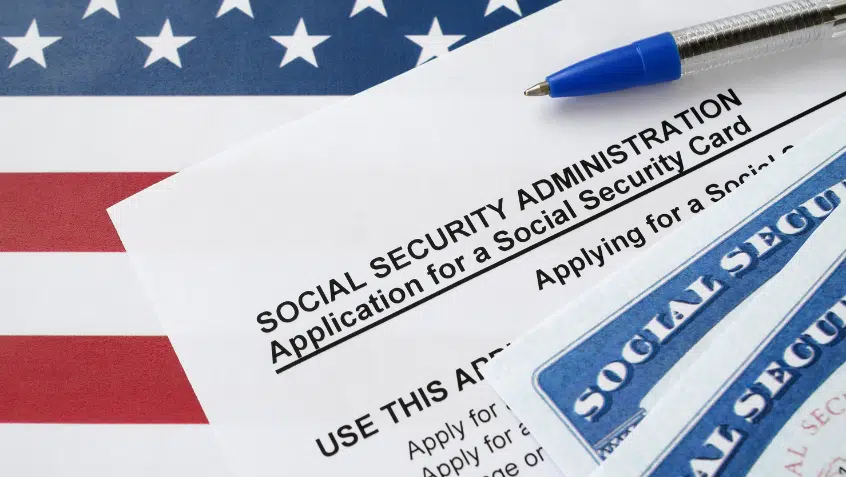Final Rules on Medicare Advantage Prior Authorization Offer Improvements, but More Change is Needed

Prior authorization is one of the processes Medicare Advantage and other private insurance companies use to manage health care utilization and provide pre-service coverage information. While this can help plans control costs and allow patients and providers to make informed decisions, plans can over- or misuse it in ways that result in inappropriate barriers to needed care. Widespread reports detailing such enrollee and provider experiences in Medicare Advantage, Medicaid Managed Care, and private insurance indicate prior authorization abuses are happening at enormous scale.
Onerous and slow prior authorization processes, vague and confusing coverage criteria, requirements that are out of line with accepted medical practice, and unlawful denials of coverage are all broadly “prior authorization problems.” These issues can result in additional burdens on overworked providers and ill patients, delay or completely bar access to needed care, result in worsening health outcomes, and contribute to the overpayment of plans as they avoid paying for care they are required by law and contract to provide.
In response to the growth of prior authorization, CMS recently issued regulations with new requirements for plans. The changes, which apply to Medicare Advantage, Medicaid Managed Care plans and Medicaid Fee for Service state administrators, Children’s Health Insurance Program (CHIP) plans, and Qualified Health Plans (QHPs) on the Affordable Care Act Marketplace, require payers to make prior authorization information available through four different application programming interfaces (APIs). APIs are a set of rules and protocols that allow different software programs to talk to each other and share data. The four APIs noted in the final rule include (1) the Patient Access API, which will allow patients to access their information through health apps of their choice, (2) the Provider Access API, which will allow providers to see claims at different stages of process and payment and recent prior authorization history, (3) the Payer to Payer API, which will allow the exchange of information, including claims data and prior authorization information from one insurance to another, and (4) the Prior Authorization API, which will automate information exchange in the prior authorization process. The automated exchange will include information about whether prior authorization is required, documentation submission to meet the requirement, and status tracking.
As noted by KFF in their analysis of the final rule, these changes will likely result in improvements in timeliness and efficiency where the API processes are taken up by providers and patients. But their reach may be limited, as such use is voluntary. Furthermore, these changes do not improve situations where the prior authorization standards imposed by the plan, formally or in practice, are inconsistent with prevailing medical practice or with the coverage obligations of the payer under Federal and State law. Additional reform and rigorous oversight is needed to ensure plan compliance with these legal standards.
Other prior authorization changes in the final rule include a tightened timeline for standard coverage decisions in Medicare Advantage, Medicaid and CHIP, alignment of existing requirements to provide a specific reason for denial to the patient and provider, and a requirement that such reason be transmitted through the API. There is also a new public reporting guideline. Payers will now be required to report aggregate information about prior authorizations and to publish that information on their websites. However, CMS will not, at this time, be aggregating that data or incorporating it into Medicare Plan Finder or other tools available to assist beneficiaries in plan evaluation and selection. We support future changes to make this information more accessible and meaningful to all stakeholders, including consumers using CMS decision-making tools.
The rule is an important step towards addressing the proliferation and misuse of prior authorization processes, but more change is needed. As highlighted in the KFF analysis, issues remain, including:
- Prescription Drugs. The rule perpetuates the separate treatment that prescription drugs receive. The rule applies only to medical items and services, not prior authorization requirements for drugs covered under Part B or Part D, whether self-administered, administered by a provider, dispensed by a pharmacy, provided in a doctor’s office or purchased over the counter. CMS cited operational complexities in applying API and other standards to these claims, but said they will consider options for doing so in future rulemaking.
- Employer-Sponsored Plans. CMS does not regulate most private employer plans, which are subject to different Federal law, administered by the Department of Labor. These rules, therefore, do not apply to most Americans who are covered by employer plans.
- Plan Processes and Decision Making. The regulation does not address how prior authorization decision are made within a plan – including which types of services warrant prior authorization, the clinical and other criteria used to make decisions on prior authorization request, the individuals, training and technologies used to make prior authorization decisions, and how these processes are updated in response to evolving research regarding the effectiveness and costs of particular services. As these decisions drive how beneficiaries experience their coverage, clear and enforceable plan guardrails are needed.
- Appeals of Prior Authorization Decisions. Research indicates and Medicare Rights experience confirms that few patients engage the daunting Medicare Advantage appeals process. A denial of prior authorization is a claim denial, generating appeal rights, but many people are not aware that they have the right to appeal or how to pursue it. Some may not have the time, ability, or resources to navigate a complicated appeals process, others may rely on their provider to act for them, or believe that an appeal is unlikely to change the plan’s decision. However, multiple independent analyses have consistently concluded that most enrollee appeals are indeed successful. For example, a KFF study of Medicare Advantage denials found that of the small number of denials that were appealed, even just to the first level (an internal appeal to the plan), 82% were either partially or completely overturned, reversing the denial and resulting in payment and coverage. Increased use and monitoring of appeals processes might uncover patterns of improper prior authorization claim denials that could help CMS and enrollees better oversee and navigate the system, respectively. Whether the result of mistakes or, more cynically, systemic preference denial in the hope that patients and providers will give up and the plan will avoid covering a service that they are paid, in taxpayer and premium dollars, to provide.
Medicare Rights welcomes the final rule and looks forward to working with policymakers to strengthen and build upon it.
Read more about Prior Authorization in Medicare Advantage here and here.
The Latest
Most Read
Trump Administration and Elon Musk’s DOGE Closing Social Security Offices, Harming Access to Services
Threats to the Social Security Administration and to Benefits Continue to Raise Alarm
New Resources Show House Budget Would Slash Medicaid, Despite Voters’ Support of Program
Federal Government Funding Decisions Loom
Add Medicare to Your Inbox
Sign up to receive Medicare news, policy developments, and other useful updates from the Medicare Rights.
View this profile on InstagramMedicare Rights Center (@medicarerights) • Instagram photos and videos









